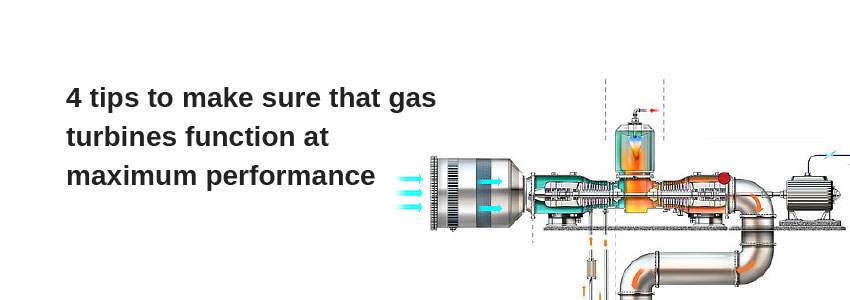4 tips to make sure that gas turbines function at maximum performance
 4 tips to make sure that gas turbines function at maximum performance
4 tips to make sure that gas turbines function at maximum performance
Gas turbines are among the most effective equipment used in the industry as they offer a high safety degree. As a proof, they are used widely to produce energy.
As the quality of the oil you use in gas turbines is extremely important, the same attention should also be paid to equipment maintenance. A gas turbine with faults will have negative effects like:
- Lifespan decrease for lubricants and bearings
- Increase if the quantity of used oil
- More unplanned idle moments of the equipment because of failures
- Increased costs with maintenance
Please find below 4 useful tips you can apply to maintain gas turbines and to make sure that these work at their maximum capacity.
1. Avoid oil contamination for gas turbines
Maintaining turbine oil clean is extremely important for maximizing equipment performance. Particle contamination is the most destructive type of contamination that can occur. This will significantly reduce bearing lifespan and will affect equipment function.
Contamination can have many sources and the particle deposits can form even if the oil is clean. In this respect, you need to check your equipment frequently and maintain the filtering system at maximum effectiveness.
Apart from particle contamination, water contamination of the gas turbine oil is another major cause that can affect the gas turbine’s lifespan. In order to prevent water contamination, make sure that your equipment is properly ventilated.
2. Periodically check the oil
Take regular oil samples to further examine both visually as well as in a laboratory. We recommend that you implement a Signum Analysis for such oil analyses.
We suggest that gas turbine oil be done following this interval:
- Daily: visual inspections concerning oil color
- Monthly: general laboratory examinations for oil quality
- Once every 6 months: detailed laboratory examinations to estimate the remaining lifespan of the oil.
Analyzing oil samples will help you detect, in a timely manner, some contaminations or other problems in order to be able to take measure that prevent idle times for gas turbines caused by unexpected failures.
3. Prevent oil leaks
Another useful advice you should take into consideration to make sure that gas turbines work at maximum capacity refers to monitoring possible oil leaks. Thus, quick identification of the leak source will help you eliminate any risks related to safety and reliability assicoated with this phenomenon.
The most common sources of oil leaks:
- Bearing sealing
- Oil supply lines
- Junction tubes in the cooling system
- Valve connections
In order to avoid potential oil leaks, make sure that oil pressure when supplying is not very high. Also, add to all your maintenance procedures the detailed check of components with increased risk of deterioration rand oil leaks.
4. Monitor temperature values
Keep a journal with the temperatures values that you constantly update. We recommend that you monitor the temperature values of:
- Water in the cooling compartments
- Oil in the tank
- Admission system and purification equipment.
Monitoring these values will help you observe any sudden change, thus you will be able to identify possible minor problems that you can fix before they escalate to more serious issues. For instance, constant changes of temperature for the water in the cooling compartments can indicate deposit formation on the cooling system, an aspect that will affect equipment performance.
Like we mentioned above, gas turbine maintenance should go hand in hand with the use of high quality lubricants to be able to get maximum performance. The severe conditions the equipment is exposed to require quality oils for gas turbines like Mobil SHC. These lubricants help extend the functioning period of turbines and reduce oil changes.
To request a customized offer for lubricants destined for gas turbines, click the image below and contact a Star Lubricants agent who will recommend the appropriate lubricants for the gas turbines you own.







